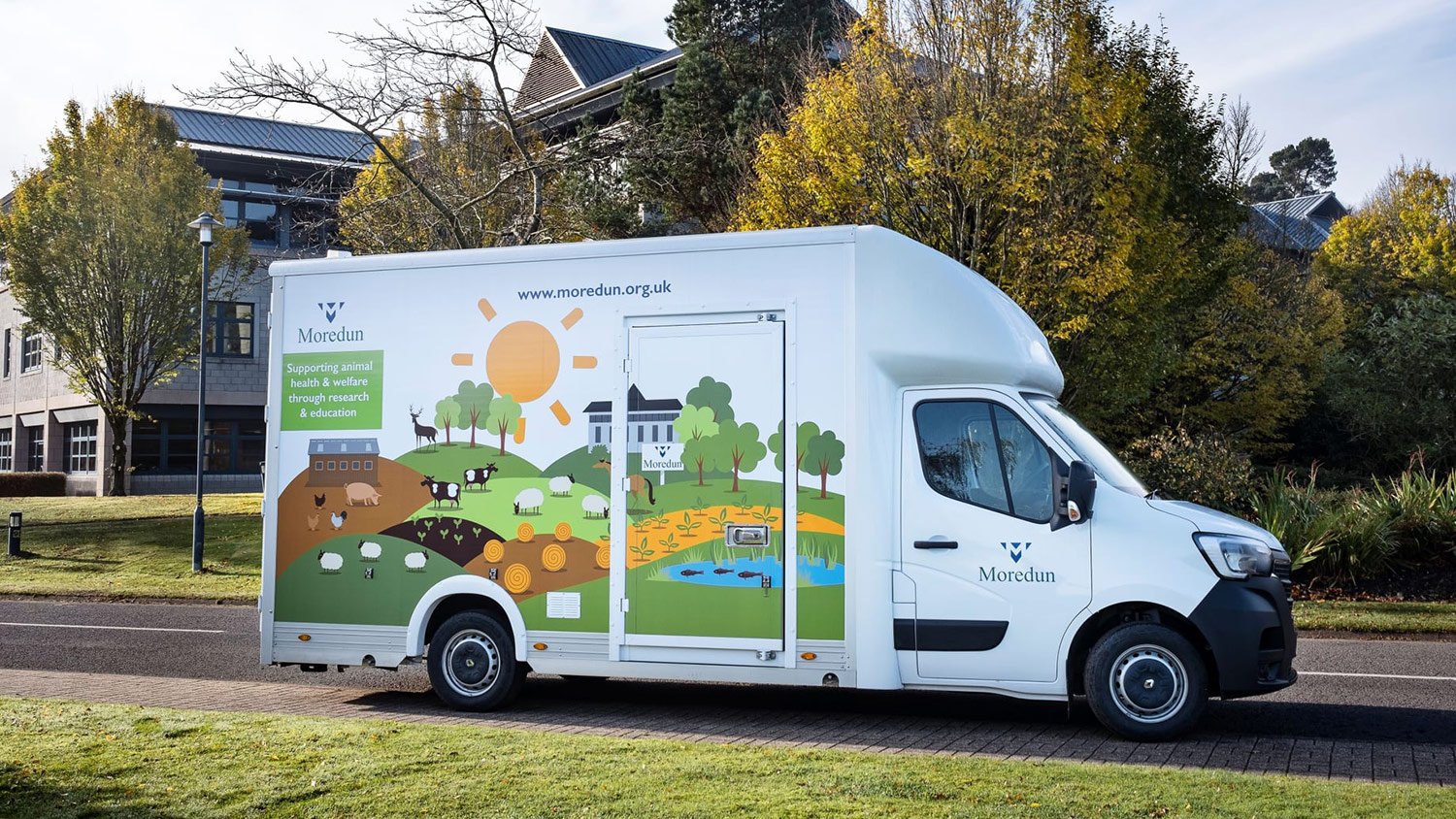Moredun and James Hutton Institutes combine forces for Science in Shetland
A Week of Hands-On Learning about Animal Disease Control
In the remote Shetland Islands, finding hands-on lab science educational opportunities can be challenging. However, thanks to Scottish Environment, Food and Agriculture Research Institutions (SEFARI) funding, teams from the Moredun and James Hutton Institutes recently brought an exciting week of animal health science to Shetland’s Junior High Schools and local communities. A full programme was organised in collaboration with the Shetland Developing the Young Workforce and Shetland Animal Health Scheme including workshops, diagnostic demos and community engagement events. The scientists shared vital skills and knowledge about animal disease management that resonated with students, crofters, farmers and vets.
Bringing Science to the Classroom
Giving Shetland students real-world science, technology, engineering and mathematics (STEM) experience in diagnostics and disease control was central to the vision of this event. The scientists tailored their workshops for S2-S4 students (ages 13-16) many of whom have roots in crofting and farming. Using a real-life scenario of a farmer who had a flock of sheep that were not thriving, so the vet was called in to take samples and sent them to the school lab for diagnostic testing. This role-play, developed at Moredun, created an experience in which the results from the “mock” tests carried out by the students, mirrored the procedures used to diagnose symptoms in the real world that they could relate to. The students examined parasite samples by microscopy, learned how to detect antibodies using an ELISA, and even explored DNA analysis to identify any resistance to treatments. These practical tasks gave students an opportunity to use STEM skills in research and to see how diagnostics directly impact livestock health. It also provided insight into exciting science based careers, showing them that science can make a real difference in their daily lives and communities.
The Moredun Biobus
Engaging the Farming and Veterinary Community
Each school visit was followed by a community event in the mobile science lab, the “Biobus”. Here, local farmers and crofters were able to meet the researchers and learn about practical tools like faecal egg counting. Farmers were encouraged to bring faecal samples from their sheep, to watch a practical demonstration and get a look down the microscope, whilst hearing about how targeted parasite treatments can prevent drug resistance, leading to valuable discussions on general livestock health. The sessions on the “Biobus” highlighted the value of diagnostic tests to farmers, allowing them to see how science-backed approaches to animal health could improve both productivity and sustainability in their flocks.
A special session with the island vet practice was well supported and gave an update on current best practices for animal health and welfare, along with discussions around new control methods for sheep parasites, such as roundworms and sheep scab.
Equine Health: A Special Session for Horse Owners
Engaging with a thriving equine community on Shetland, an evening event, organised with the British Horse Society Shetland, focussed on equine health issues, including updates on Equine Grass Sickness (EGS) and best practices for roundworm control. During the meeting, local horse owners were invited to participate in ongoing studies to advance our understanding of this devastating disease that has struck many times on Shetland. The scientists also shared advice on responsible use of dewormers to slow drug resistance, initiating valuable conversations on best practices in horse management.
A Vision for Future Collaboration
The week’s outreach laid the groundwork for further educational and collaborative efforts. Plans are underway to expand STEM activities across the islands. The farmers’ interest extended beyond their own fields: many were eager to explore the possibility of a collaborative disease management network with other Scottish islands, enabling them to share insights and strategies across island communities.
Teachers, students, farmers, and vets alike expressed enthusiasm, with many hoping these events become a regular part of Shetland’s educational landscape. Feedback from participants was overwhelmingly positive. One teacher noted, “Having the Moredun Institute delivering workshops across our schools was a great experience for both the pupils and staff. It brought science to life in a way that resonates with our rural community.” With continued funding and a collaborative commitment from institutes and communities alike, the Shetland visit has set a precedent for how science outreach can bring practical experiences to remote communities. By empowering locals with knowledge and practical skills, the Moredun and James Hutton Institutes have fostered enthusiasm and understanding to pave the way to improve the health of livestock, more sustainable farming and inspire future scientists. The project highlighted that no community is too remote to benefit from the impact of scientific discovery.
For further information and images, please contact:
Dr Beth Wells
KE Specialist/Principal Research Scientist
Moredun Research Institute
Pentlands Science Park
Bush Loan, Penicuik
Midlothian, EH26 0PZ
T: (0)131 445 5111


